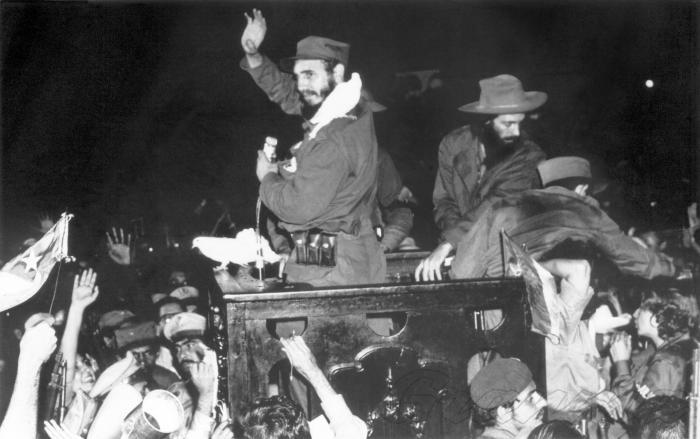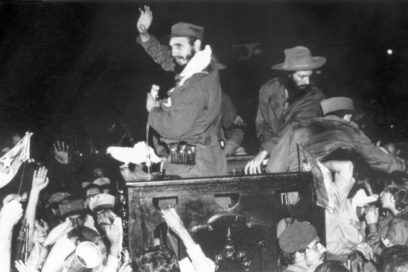When Fidel and his bearded troops, steeled in battle against the dictatorship, reached the Columbia base, January 8, 1959, an exacting stage in the national liberation struggle came to an end and a hopeful, unprecedented chapter in the country’s history began.

The symbols were there for all to see. The people turned to the streets; the reunion with the Granma yacht in the port of Havana, the leader’s decision not to travel through the city’s avenues in one of the latest model cars abandoned by the tyranny in the Presidential Palace, but to do so standing in a jeepunder the open sky, the doves resting on the podium where he spoke and on the Comandante’s shoulders.
He was, however, fully aware that everything would be much more difficult in the future, but it was possible to overcome the obstacles and advance toward the conquest of all possible justice, on the basis of a principle that today remains one of the main strengths of the revolutionary process.
Fidel spoke of it 30 years later, during the commemoration of the triumphal entry of the Freedom Caravan into the capital: «I remember that night, our fundamental concern was the question of the unity among revolutionary forces, to avoid the emergence of divisions and confrontations among those who had fought against the dictatorship; to avoid conflicts and divisions among our people, because it was precisely conflicts and divisions that, in Martí’s thinking, made victory in the Ten Years’ War impossible; and division throughout our history had made the full conquest of independence in our country very difficult.”
Sixty-one years later, the continuity of the work he began and successive generations carried forward is a fact. As is also the image with which an exceptional witness of that day, Comandante de la Revolución Juan Almeida Bosque, described the intensity of the moment: «It is as if a volcano shook the Columbia grounds. The crowd was afire, shouting: «Fidel! Fidel! Fidel!»
Fidel keeps his word
The Comandante en jefe and his caravan rested for a few hours after having entered Matanzas on January 7 through Los Arabos, passing through Colón, Perico, Jovellanos, Limonar to the provincial capital. Early the next morning, Fidel did not move directly on to Havana, but took a detour to Cárdenas, to keep his word to student leader José Antonio Echeverría, murdered on March 13, 1957. He went his grave with flowers and to his home for an intimate conversation with the family.
In Matanzas, he insisted, “No more politicians, henchmen, or dictators.”
This January 7, 61 years after the authentic Revolution’s first days and more united than ever, young people from the province recalled the passage of the Freedom Caravan, which made its entrance, as then, through Los Arabos. Several combatants from the 1959 Caravan were honored and a group of young people received their Young Communist League membership cards. The events were re-enacted in other towns along the way, and in Matanzas, representatives of several generations, led by Party and government authorities, recalled the unforgettable day, following Fidel’s footsteps and paying tribute to José Antonio.


